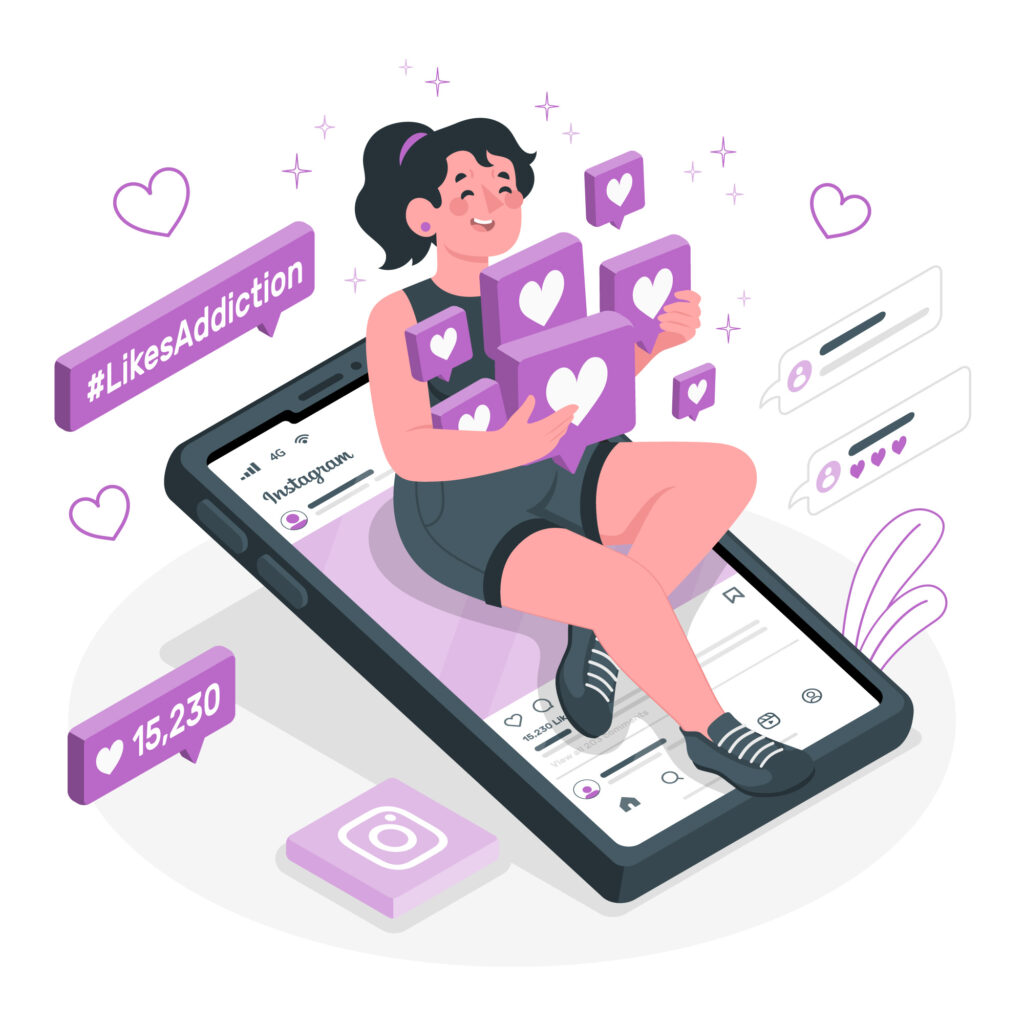Can you imagine a world without social media ?
Close your eyes and imagine all of your social media disappear. No scrolling through endless feeds of posts, no more comparing yourself to others, no more worrying about likes and comments, and no more FOMO. Would it be great for you ?
For many of us, social media has involved much deeper in our lives. It connects us to our friends and family, learn the current events, support businesses, and discover our new interests. On the other hand, it has some downsides. Social media can lead to cyberbullying, depression, mental health issues, and being used to spread fake information. So, what would a world without social media be like? Would it be a better place? Or a worse place?
Social media has become an integral part of our daily lives, coursing through our veins wherever we go. In a world with approximately 8.01 billion people, there are 5.16 billion internet users and 4.76 billion active social media users as of January 2023, as reported by datareportal.com. This data underscores that over 50% of the global population relies on the internet and social media to connect with one another.
As of 2022, the majority of internet users worldwide fall within the 15-24 age group, followed closely by those aged 25 and above, according to statistics from statista. Surprisingly, the younger demographic constitutes the largest portion of internet users. Even teenagers as young as 15, who are typically in junior high school, are utilizing the internet for various purposes. This is intriguing when considering that individuals over 25 years of age may require social media more for professional interactions. Furthermore, modern-day education institutions increasingly rely on the internet to support learning, encouraging students to utilize online resources for homework and assignments
In our country, Indonesia, the population stood at approximately 276.4 million as of January 2023, marking a notable increase of 1.8 million or 0.6% between 2022 and 2023. Impressively, the number of internet users in Indonesia reached 212.9 million by January 2023, reflecting a penetration rate of about 77% of the total population. Data from datareportal.com reports that, at the start of 2023, 63.51 million individuals in Indonesia did not use the internet. However, despite this significant digital presence, the number of active social media users in Indonesia reached around 167 million in January 2023. Market share data from Statcounter reveals that Facebook leads with the largest share at 46.76%, followed by YouTube at 42.03% and Twitter at 5.37%. This discrepancy in market share creates an imbalance in the number of active users across different social media platforms in Indonesia.
However, this observation aligns with my personal opinion, as I must admit that I frequently turn to YouTube to find the information I need. While the average time spent on social media by internet users worldwide in 2022 was approximately 147 minutes according to statista report, the scenario in Indonesia tells a different story. Here, the average time spent was estimated to be higher than the global average, at around 198 minutes on social media. This finding suggests that the typical Indonesian is more engaged with social media compared to the average global user. It’s worth noting that these are averages, and there’s a considerable range within Indonesia, where individuals may spend more than 250 minutes or less than 100 minutes individually.
This big range in time spent on social media is pretty common in Indonesia because more and more people are getting online each year. Look at the graph below (Image 1) – it shows that folks are spending more time on TikTok compared to other platforms. Interestingly, Facebook saw a drop of 3.9% in how much time people spent on it by January 2023. This leads to a question: What are TikTok users watching to make it just a bit more popular than WhatsApp? If we assume that TikTok videos are about 1 minute long, users are watching a whopping 1,740 videos each month. But even if the videos are around 2 minutes, that’s still 870 videos monthly!
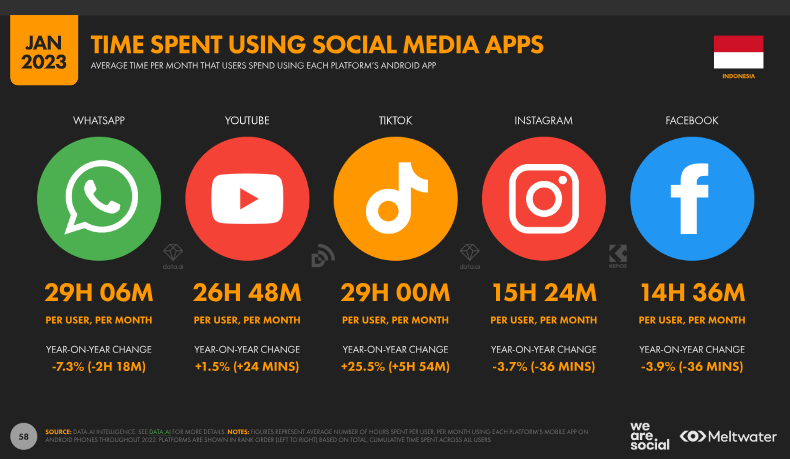
Image 1: datareportal.com
Let’s take a look at the growth of TikTok, which stands out with the highest percentage among all social media platforms. I assume that the drop in usage on other social media, except for WhatsApp, has shifted towards TikTok due to its rising popularity. In my view, many people turn to TikTok for entertainment and to kill time, even though Instagram and Facebook offer similar content. TikTok offers short videos covering a wide range of topics, making it a go-to choice. It’s not surprising that TikTok has experienced significant growth, as data from a TikTok report reveals that Indonesia is one of the three fastest countries to embrace vertical videos. Top hashtags show searches related to lifestyle updates, skincare, and shopping in TikTokshop.
On the other hand, there’s a noteworthy trend where many Indonesian users focus on financial education. This is evidenced by the prevalence of hashtags in the financial industry, such as #SerunyaBelajar, #Crypto, #KelasBisnis, #Investasi, #Saham, and #BelajarInvestasi, among others. This is a positive development, signifying that users trust TikTok as a platform for acquiring the information they need. Moreover, users not only consume content on TikTok but also actively share their experiences through short videos, reinforcing TikTok’s credibility as a platform for sharing experiences.
Despite TikTok’s remarkable user growth, other social media platforms remain important due to their unique functions and purposes. For instance, we use WhatsApp to stay connected with friends, colleagues, or family remotely, rather than seeking entertainment like on TikTok. According to data from we are social, the primary goal of using social media is to keep in touch with friends and family, accounting for 60.6% of active internet and social media users aged 16 to 64. Consequently, it’s no surprise that WhatsApp use is the highest in Indonesia, surpassing several other social media platforms. The second most common objective is to pass the time, with 58.2% of users seeking easy entertainment through social media, given its accessibility with an internet-connected mobile phone. Further down the list, we find concerns about being left out of social trends and experiencing FOMO, which registers at 28.9%.
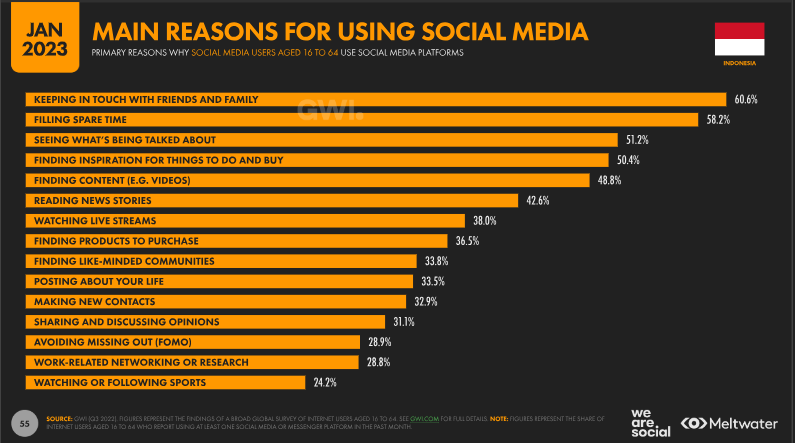
Image 2: datareportal.com
Bad Impacts on People Live’s
Have you ever felt that time seems shorter now? Does your cell phone battery run out faster? Do you often feel disappointed with yourself? Or are you currently reading this article with a notification from your social network? Which do you consider further, this article or reading the notification first?
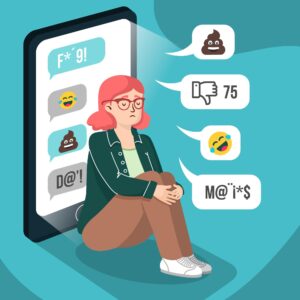
1. Time Management
Social media platforms like Facebook, Instagram, and TikTok have become integral parts of our daily lives. These platforms engage us in continuous scrolling for the latest information, often causing us to spend considerable amounts of time without even realizing it. This, in turn, can disrupt our time management, blurring the line between our online and offline lives and affecting our work or study routines. For instance, while trying to focus on our studies, we are frequently tempted to open social media, distracting us from our learning objectives. This tendency highlights the challenge of setting priorities, as we tend to check social media even during work or study sessions.
The more time we invest in social media, the more addictive it becomes, making it increasingly challenging to break free. Social media notifications play a significant role in this, tricking our brains into diverting our attention. Personally, I’ve experienced this and seen how it can negatively impact productivity. Ultimately, we may not even realize the extent of our engagement with these platforms or the time we spend on them. If we were to calculate the hours spent, we might be surprised to find that it rivals or even exceeds the time we allocate to sleep.
2. Increased Screen Time
Social media functions like a magnet, drawing us in time and time again, much like the attraction of narcotics. It attracts us into extended screen time with the enticing notion that it’s endlessly entertaining, nudging our brain to say, “Hey, it’s so much fun, just dive in whenever you’re bored!” Many of us turn to social media to fill our leisure moments, alleviate boredom, or simply to stay updated on current events.
This behavior is largely driven by our curiosity, as social media constantly presents us with an array of captivating content, from posts to videos and more. The ever-fresh content creates a comfortable environment for us to scroll through, sometimes even drawing us away from our real-world activities. The more we engage with it, the less we seem to impose time limits on ourselves, resulting in a distraction from other essential tasks we ought to be prioritizing.
3. Mental Health Issues
Social media exerts a substantial influence on our mental well-being, delivering both positive and negative outcomes. On the one hand, it facilitates keeping in touch with friends and family, acquiring new knowledge, and expressing our creative selves. On the other hand, it can be a breeding ground for anxiety, depression, the notorious FOMO (fear of missing out), feelings of isolation, and sleep disturbances. Among these, one of the most striking negative impacts is the incessant comparison to others.
Social media often presents a curated and filtered reality, inviting us to draw comparisons with the seemingly flawless lives of our online connections. This frequently leads to feelings of inadequacy and a drop in self-esteem. The fear of missing out (FOMO) is another emotional trigger. When we witness others sharing their thrilling experiences, it can generate a sense of exclusion, producing emotions like envy, jealousy, and social detachment. Additionally, social media interaction can breed loneliness and discontent. Despite the multitude of online connections, these interactions often remain superficial, unable to replicate the depth of real-world relationships. Moreover, the constant exposure to positive and manicured content may sow seeds of dissatisfaction with our own lives.
Lastly, extended social media usage is associated with sleep disturbances, disrupting our rest in various ways. The blue light emitted from screens can meddle with our sleep patterns, while the constant stimuli from social media can make it hard to fall asleep and stay asleep. Sleep deprivation, in turn, carries a host of negative consequences, ranging from depression and memory lapses to diminished academic performance.
4. Comparing Yourself with Others
Social media often presents a carefully curated and filtered version of reality, making it effortless to compare ourselves to the seemingly flawless lives of others. This inclination towards comparison can result in feelings of inadequacy, a drop in self-esteem, and the poisonous presence of envy. Moreover, social media platforms frequently employ algorithms that recommend similar content to our past likes and views. This algorithm can construct an echo chamber where we’re primarily exposed to affirming information, distorting our perception of reality and reinforcing our feelings of insufficiency.
The constant pressure to measure up against others can bring about substantial stress and anxiety. We may feel compelled to perpetually share flawless content to uphold our social media image. This weighty expectation, especially burdensome for young individuals in the process of shaping their self-identity, can end up in a heavy emotional toll. Additionally, the fear of missing out (FOMO) can lead to excessive social media use, further fueling stress and anxiety.
Social media’s contributions are not limited to just stress; they can also pave the way for sadness and isolation. Despite the vast number of online connections, interactions on social media often remain on the surface, failing to match the depth of real-world relationships. This superficiality, combined with a constant influx of meticulously tailored content, can breed a sense of discontentment with our own lives.
The perils of endless social media comparisons are significant, giving rise to depression, anxiety, and negative body image. The act of comparing ourselves to others can also foster feelings of envy and dissatisfaction in our own lives. However, these risks tend to be more pronounced when an individual is deeply connected in social media or when a substantial portion of their daily life revolves around it, making it challenging to break free from its grip.
5. Instant Dopamine Hit
All social media platforms have the ability to stimulate our brains to release dopamine, a neurotransmitter closely linked with feelings of reward. It’s as if social media were a virtual slot machine or akin to cocaine, perpetually enticing us to keep coming back for more. This phenomenon capitalizes on the brain’s dopamine-driven response, whispering, “Hey, you’ve received a reward! How wonderful! Let’s repeat again!” The unfortunate truth is that this initial burst of happiness is often short-lived, ultimately leaving us with our underlying concerns.
One key moment when our brains release dopamine is when we succeed in social interactions. This success acts as a motivator, encouraging us to relive these interactions and seek out similar experiences. Social media quantifies these interactions through features like “likes,” comments, and shares. When individuals receive a high number of likes, comments, and shares, it triggers a pleasurable response, tricking our brains into releasing dopamine, thus creating a sensation of happiness. This sensation compels us to return in hopes of recreating the same experience, regardless of the odds.
It’s important to understand that the happiness derived from social media is often fleeting. Once we disengage from social media, the dopamine rush we experienced wears off, sometimes even leaving us in a worse state than before. This is because social media provides easy access to short-lived moments of happiness. One astonishing revelation that struck me while composing this article is that the impact of social media on our brains is similar to the effects of cocaine. As previously mentioned, social media tricks our brains into generating instant and substantial dopamine levels, simulating a sense of reward.
What Happen If Social Media Shutdown From Our World
Shutting down social media would have a profound impact on our society. We would need to find new ways to connect with friends and family, stay informed about current events, and entertain ourselves. Our identities would no longer be shaped by the digital sphere, and our mental landscape and thought processes would inevitably change.
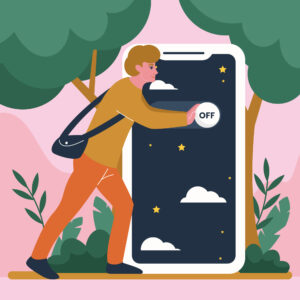
1. Increase Our Privacy
In a world without social media, one of the most striking transformations would be the substantial increase in privacy. Social media platforms are prominent for their extensive collection of personal data, but in the absence of these platforms, this wealth of information would no longer be readily available for commercial exploitation. This change would offer individuals a break from constant online surveillance and data tracking.
As a result, people would experience a resurgence in their sense of digital privacy. They would navigate the online world with a heightened level of anonymity and a firmer grasp on the control of their personal information. The disappearance of social media would usher in an era where privacy takes center stage in the digital landscape, providing a welcome relief for those who are concerned about their online footprint and data security.
2. We Need More Face-to-Face interaction
In a world without social media, one of the most remarkable changes would be the resurgence of face-to-face interactions. With online platforms no longer dominating our means of communication, people would naturally gravitate towards in-person meetings and conversations. This shift holds the potential to breathe new life into personal relationships, as it fosters and fortifies genuine, real-world connections.
The absence of social media may pave the way for a heightened appreciation of direct, human interaction. This, in turn, could lead to the cultivation of deeper bonds, greater empathy, and a richer understanding among individuals. Ultimately, this transformation could result in a society that places a premium on the quality of personal relationships. It represents a departure from the often superficial and fleeting connections that social media can generate, offering a refreshing shift in our social dynamics.
3. No More Comparing With others
In a world without social media, a notable advantage would be the reduction of social comparison. Social media platforms frequently fuel a continuous cycle of users comparing their lives, appearances, and accomplishments with others, taking a toll on mental well-being. In the absence of this incessant stream of curated content, people would experience less pressure to conform to unrealistic standards, potentially strengthening their self-esteem.
The lack of social media could foster a more authentic self-assessment and lessen anxiety related to constantly measuring ourselves against others. In such an environment, individuals could redirect their focus towards personal growth and well-being, freed from the pervasive influence of social comparison. This shift could lead to a more content and mentally healthier society, as people find themselves less preoccupied with unrealistic comparisons and more engaged in their own growth and happiness.
4. Reduce Screen Time
In a world without social media, a prominent advantage would be the reduction in screen time. Social media platforms tend to be highly addictive, often holding users captive to their screens for extended periods. With these platforms removed from the equation, individuals would naturally redirect their attention toward other activities and engage more with the tangible world.
This transformation could bring about a multiple of benefits, ranging from enhanced physical health by reducing sedentary screen time to an improvement in mental well-being through increased outdoor activities, face-to-face interactions, and the pursuit of personal hobbies. A decrease in screen time equates to an increase in opportunities for productive, enriching, and diverse experiences, ultimately contributing to a balanced and healthier lifestyle.
The absence of social media would encourage a transition from the digital realm to the physical one, allowing people to savor life’s moments and explore new interests. This shift signifies a departure from screen-centric living and a return to more fulfilling, real-world experiences.
5. Difficulty Connect to Other
In a world without social media, one noticeable challenge would be the difficulty of connecting with others. Social media platforms have become essential for creating and sustaining relationships, even across long distances. Without these platforms, we’d have to rely on more traditional forms of communication like phone calls, emails, or in-person meetings. It would be harder to find and stay in touch with friends, family, or colleagues, especially if they’re far away.
However, this shift might also encourage more meaningful and intentional interactions. People would invest time and effort into building connections that could be deeper and more genuine. So, even though it would require more work, the world without social media might lead to relationships that are more profound and authentic.
6. Limitless Access to Information
In a world without social media, one noteworthy outcome would be a reduction in our access to information. Social media has become a crucial source for news, knowledge, and updates. Its absence would push us back to traditional sources like newspapers, TV, and websites. This change might slow down how quickly we get the latest news. On the upside, it could encourage more in-depth, fact-checked journalism, which would help reduce the spread of false information. So, in a world without social media, we’d have to balance the loss of instant information with the potential gain in reliable and accurate reporting.
7. Reduce Social Support
In a world without social media, a big change would be the reduction in the readily available social support. Social media has become a crucial way for people to connect, seek emotional help, advice, and find a sense of community in difficult times. Without these platforms, it would be harder for individuals to reach out to their online networks for assistance or comfort.
However, this change might also encourage a resurgence of support from the real world, like family, friends, and local communities. In a social media-free environment, people would need to focus more on building and nurturing face-to-face relationships, leading to a different, potentially deeper and more immediate form of social support.
The challenge would be to strike a balance between the benefits of online support and the value of personal connections in a world without social media.
8. Reduce Business Opportunity
In a world without social media, one significant result would be a decrease in business opportunities. Social media platforms have become essential for businesses to connect with their customers, advertise their products, and establish their brand. Without these platforms, companies would need to find other ways to market and engage with their customers, which could potentially slow down their growth and reach.
However, this change might also encourage a return to more personal and customer-focused approaches, where the emphasis is on building direct relationships with clients. Finding the right balance between the loss of social media’s wide reach and the potential for deeper, more customized interactions with customers would be a key consideration in a world without these digital platforms.
If Social Media Can’t be Shut Down, How to Overcome Bad Impacts of Social Media ?
Completely getting rid of social media isn’t a realistic option, as it’s deeply ingrained in the way we live today. However, it’s important to recognize and deal with the downsides of using it. So, are we ready to tackle and manage the negative effects that social media can have on our lives?
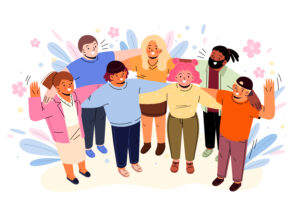
1. Set Daily Time Limit
Setting a time limit on your social media use can help you keep track of how much time you spend on these platforms. It’s a good idea to establish a limit based on your personal habits, but I’d recommend not going over one hour. Moreover, scheduling specific times to check your social media can be beneficial in avoiding any negative effects. For example, you can allocate 15 minutes after you’ve finished your work or set a time to log in within two hours of waking up. These practices can lead to a more productive day, whether you’re focused on work or studying, and ensure that your social media usage serves a purpose.
2. Schedule session for using social media
Frequently checking your social media without keeping track of the time can harm your productivity. Instead, it’s a good idea to set up a regular schedule for checking your social networks and messages. This way, you can establish clear boundaries between your online interactions and your daily tasks, ensuring a more productive day.
3. Unfollow accounts that make you feel bad
Many people struggle to unfollow or disconnect from certain accounts, especially if they have a large number of followers. But ask yourself, can you tolerate interacting with an account that consistently makes you feel down or triggers negative emotions? If the answer is no, it’s a good idea to take action. You can start by unfollowing accounts that evoke feelings of guilt, fear, or inadequacy. Remember, if these accounts don’t resonate with you, and you don’t resonate with them, it’s perfectly fine to let them go. You should focus on living your life in a way that suits you and makes you feel comfortable.
4. Create before consume
Many people use social media without actively contributing. Let’s simplify it. When you open your social media, try to create something valuable for yourself and your followers in a positive way. For example, share a creative video about how you manage your day effectively. Also, if you plan to message someone on a social network, send your message before you start scrolling through your interesting feeds. This approach helps ensure you have a reason for using social media. It’s like when you want to find specific information, look for what you need first, and then you can explore further.
5. Turn off notification
A little “beep” sound can really mess up your day. It’s pretty silly if your whole day gets thrown off because of these beeps when you’re trying to work or study. Just keep in mind that most of these notifications can wait, so you can check them later. Like I mentioned earlier, setting a specific time to check your social media on your phone regularly can help you avoid these disruptions.
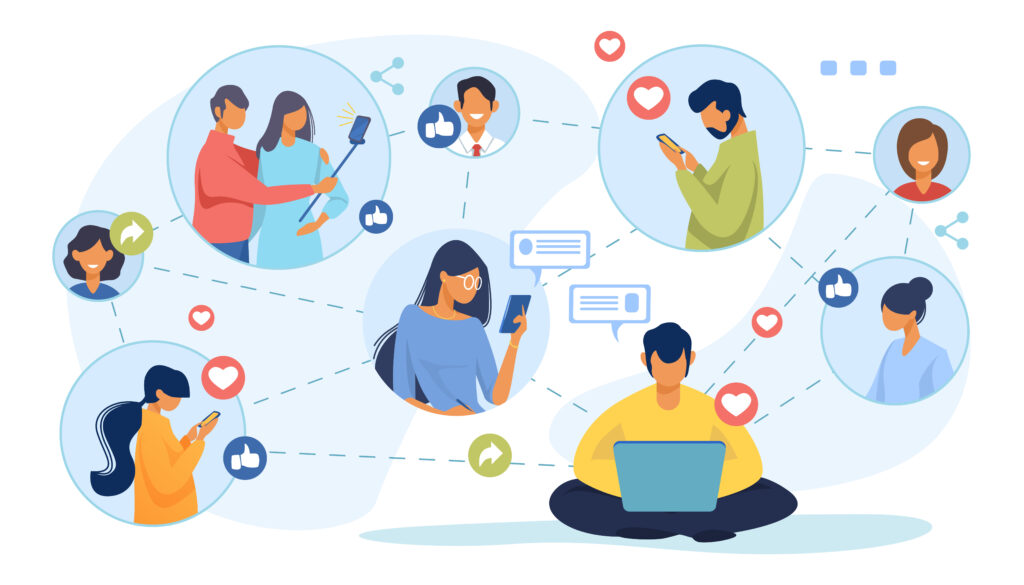
So guys, social media has become an integral part of our daily lives. It’s challenging to detach from its allure, even if you try to disconnect. The truth is, social media is massively popular worldwide, with nearly everyone jumping on board. As I highlighted with the data at the start of this article, folks have various motivations for using social media.
Don’t let the downsides affect our lives. It’s a shame if we end up living our lives just to mimic others on social media. We might lose our unique identity by constantly comparing ourselves and being plagued by FOMO. Here’s the truth: they probably don’t care about you. So, why should you be so concerned about what others think of you on social media? Do you really want to spend your time and energy following their lives, at the cost of your own happiness? Isn’t there a wiser way to approach social media? After all, it’s just a tool. So, what’s your plan for better managing your social media use?
I’m sorry if there are any mistakes in this article. It’s my own work, and I’ve also included my personal opinions. I’d like to express my gratitude to my friends who took part in a survey that helped me create this article. If you find any interesting topics, please discuss them in the comments below or contact me directly. I look forward to seeing you in my next article, whether it’s on a similar topic or something different. Thank you!
References
After A Few Minutes Of Social Media, This Happens – Neuroscientist Andrew Huberman
The Simple Reason Why Social Media is RUINING Your Life | Jordan Peterson
4 Tips for Setting Boundaries with Social Media
A Former Facebook VP Says Social Media Is Destroying Society. And He’s Right.
13 Positive Effects of Social Media on Our Society Today
Is Social Media Ruining Your Life?
Dopamine, Smartphones & You: A battle for your time – Science in the News
When People Compare Themselves to Their Social Media Friends, It Can Help or Hurt Their Feelings
How to Break Out of the Social Media Comparison Trap
How use of social media and social comparison affect mental health | Nursing Times
When People Compare Themselves to Their Social Media Friends, It Can Help or Hurt Their Feelings
Screen Time, Social Media Use, and Adolescent Development
How Social Media Affects Time Management
Social Media: Influences and Impacts on Culture | SpringerLink
Social Media: Influences and Impacts on Culture
Digital 2023: Indonesia — DataReportal – Global Digital Insights
global daily social media usage Q1 2023, by territory | Statista
Indonesia: daily time spent using media by activity 2022 | Statista
Can you imagine a world without social media ? Read More »
